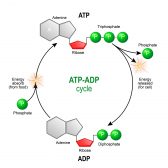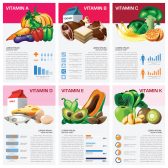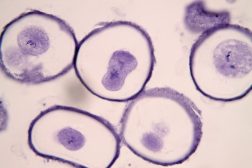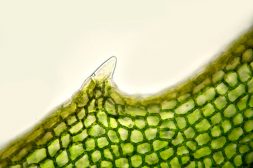Density dependent inhibition of growth
(Science: cell culture) The phenomenon exhibited by most normal (anchorage dependent) animal cells in culture that stop dividing once a critical cell density is reached.
The critical density is considerably higher for most cells than the density at which a monolayer is formed, for this reason, most cell behaviourists prefer the term density dependent inhibition of growth as this avoids any confusion with contact inhibition of locomotion, a totally different phenomenon that is contact dependent.
Dictionary > Density dependent inhibition of growth
You will also like...

ATP & ADP – Biological Energy
ATP is the energy source that is typically used by an organism in its daily activities. The name is based on its structu..

A Balanced Vitamin Diet – Vitamins A – K
A balanced diet is essential to a healthy organism. Insufficiency or too much of a particular element or compound, such ..

Biological Cell Introduction
It only takes one biological cell to create an organism. A single cell is able to keep itself functional through its 'mi..

Meiosis – The Genetics of Reproduction
Meiosis is a form of cell division that creates gametes. It is comprised of two divisions that in the end, the resulting..

Respiration
The human respiratory system is an efficient system of inspiring and expiring respiratory gases. This tutorial provides ..

Plant Meristems and Growth
In plants, growth occurs in meristems, which are the site of repeated cell division of unspecialized cells. These cells ..

